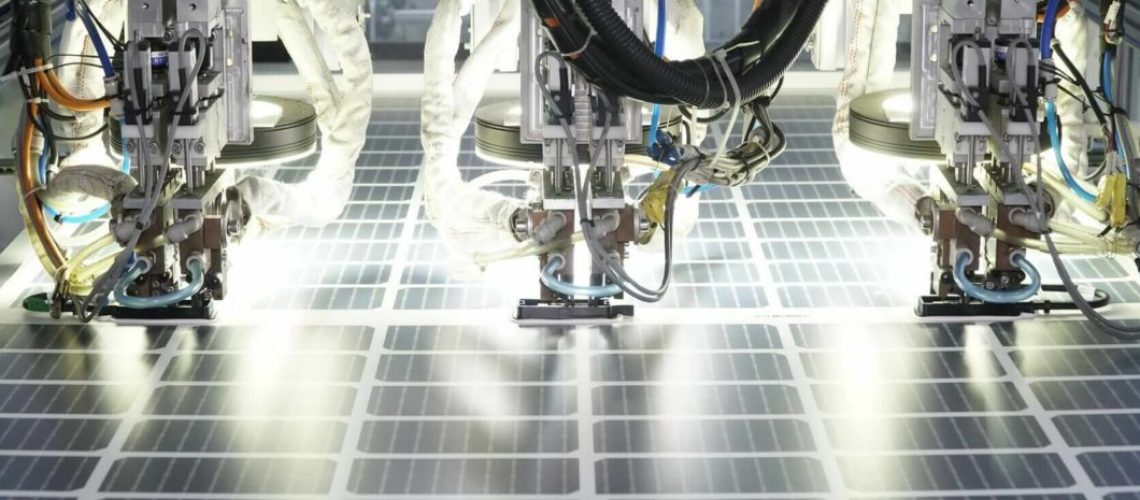The PERC PV cell, monofacial and bifacial solar module provider will supply its Vega series modules for a US project.
Boviet Solar, a Vietnam-based cell and module manufacturer with operations in the United States, announced it closed a 138 MW solar module order with a major US project developer. The developer chose Boviet’s Vega Series 550 W PERC ( (passivated emitter and rear cell) )monocrystalline bifacial double-glass PV modules. The developer’s name has not yet been disclosed.
The Vega Series panels feature high-purity monocrystalline wafer technology combined with PERC, half-cut, multi-busbar, and large cell design modules. The 550 W module features 10 busbars, 144 cells, a silver frame, and a transparent backsheet. It holds a module efficiency of 21.1%, and a system voltage of 1000/1500 V DC. It has a maximum power output of 433 W, and is rated to operate between –40 degrees F to 185 degrees F.
Each module measures 90.40 x 44.65 x 1.38 inches and weighs just under 64 lbs. It has a 25-year linear output warranty with 2.5% degradation in the first year and less than 0.6% from the second year until the end of the warranty. It also comes with a standard 12-year product warranty.
The solar modules have been a PVEL top performance product on its scorecard since 2019, and BloombergNEF Tier 1 status since 2017. BloombergNEF’s tiering system for PV module manufacturers is primarily based on bankability, the most important feature of a utility-scale solar module for most developers.
In May, the company was listed as a “Top Performer” in PV Evolutions Labs’ (PVEL) 2022 PV Module Reliability Scorecard for the fourth consecutive time.
“We congratulate Boviet Solar for having modules listed in all of the Scorecard’s Top Performer categories,” said Tristan Erion-Lorico PVEL VP of sales and marketing . “PVEL commends Boviet for the strong results they have demonstrated throughout our rigorous testing.”
“Boviet Solar continues to be a reliable source of top-quality PV modules for the American market. This ability to deliver modules despite the uncertainties affecting the US solar industry is critical for our customers and their projects, and it remains a priority for Boviet Solar,” said Sienna Cen, president of Boviet Solar USA.
Shift to new technology
This April, Boviet announced it is developing new module technologies to meet the evolving needs of project developers. It is working on a new N-tunnel oxide passivated contact (TOPCon) cell technology, which it claims is more efficient and stable. It is also working on a second R&D project to integrate N-TOPCon cells into 600W+ modules. The modules will feature advanced casing and will benefit from a low temperature coefficient, low attenuation, and higher double-sided ratios, said Boviet.
In addition, Boviet Solar said it is targeting heterojunction (HJT) cell technology. It said it expects HJT to become the next-generation mainstream technology, with an efficiency rating of 27.5%.
Boviet is not the only company switching to TOPCon. The world’s major solar manufacturers can be expected to switch from industry-standard PERC products to TOPCon technology “within the next few years,” according to one US analyst.
The technological shift prompted by manufacturers nearing PERC’s conversion efficiency threshold of 23.7% – for commercially produced products – is one of the predictions made by Denver-based Clean Energy Associates (CEA) in its survey of the solar manufacturing industry during the last three months of 2021.



